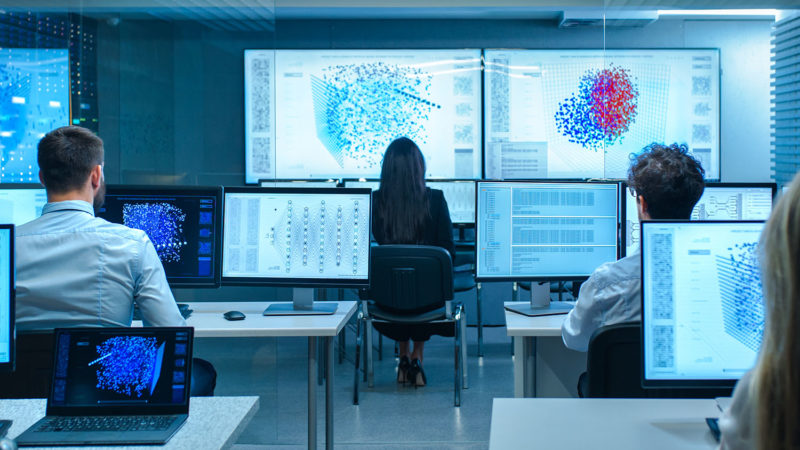

The evolution of artificial intelligence
Artificial intelligence (AI) is an increasingly ubiquitous technology in our daily lives and is already supplanting some human functions. Should we be concerned? Will it surpass human intelligence? We spoke to Dr Ricardo Baeza Yates, Director of Research at Northeastern University in Silicon Valley.
The coexistence between people and artificial intelligence has become normalised. The exponential increase in the processing power of computers, Big Data and advances in machine learning algorithms and neural networks have enabled artificial intelligence to advance by leaps and bounds.
Although AI is moving forward at a dizzying pace, it cannot yet replicate human emotions, creativity or intuition. It relies on specific learning and does not have the ability to understand the world as a human does. However, it is only a matter of time before it surpasses humans’ intelligence and abstract thinking capability.
The software engineers who developed ChatGPT warn that in ten years artificial intelligence systems will be able to surpass humans in most disciplines. Even so, Ricardo Baeza believes that it is possible that in the future “we will have a type of augmented humanity, rather than robots that dominate or exterminate us”, and adds, “we are always the ones in control and, if we are not in control, it is because of us, not because of artificial intelligence”.
The transformation of the labour market
One of the main concerns raised by the development of AI is the impact on the labour market. The automation of tasks threatens specific jobs, especially those that are routine or repetitive. But this has happened before, and it is important to remember that history has shown that technology also creates new job opportunities. “Artificial intelligence should complement people. Making the right use of it to increase their productivity,” says Baeza.
On the other hand, the massive use of personal data and machine learning raises questions about privacy, algorithmic discrimination and accountability in decisions made by AI-governed systems. It is crucial to establish sound ethical frameworks and the adoption of practices that ensure AI is used for the benefit of society at large.
11Onze Recommends Bitvavo, cryptocurrency trading made easy, safe and at a reasonable cost.
Leave a Reply
You must be logged in to post a comment.






Interessant article. Caldria preguntar -li a alguna IA quins són els veritables perills que comporta. A mi se m’escapen…
Bona pensada, Francesc! Seria interessant comprovar com de perillosa es veu l’IA a ella mateixa.
La mal anomenada IA és una fal·làcia. Nomes cal que en el programa s’introdueixi una una dada aleatòria perquè tota la seqüència del càlcul que s’està fent, quedi col·lapsat.
Gràcies per la teva reflexió, Lluís!
Gràcies
Gràcies a tu, Daniela, per ser-hi i per seguir-nos!!!
👌
Gràcies, Joan!!!
👍
Gràcies, Manel!!!